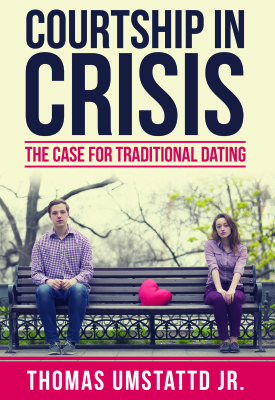I found this article is by Jon Speed and I wanted to share i with you. let me know what you think.
Self Examination & Assurance by Jon Speed
The doctrine of self examination is one that is rarely taught in the modern evangelical church. It was not always this way. Throughout most of post-Reformation history the concept of examining one’s own salvation in light of the teaching of the Word of God was commonly taught. It is interesting that this doctrine appears to have been abandoned in the twentieth century. A brief survey of my own library reveals that the doctrine was emphasized in the 16th until the mid to late 19th centuries, but is very difficult to find represented in the 20th century, except for a few select writers who were greatly influenced by the older lights.

The real issue is whether or not the Bible, the Book of books, teaches this doctrine. I am only beginning to study this doctrine in depth myself, but even a cursory examination of the Bible reveals that we are commanded to "examine ourselves"(1 Corinthians 11:28).
In what is considered by many modern evangelicals a difficult passage, the Apostle Paul admonishes us to "work out your own salvation with fear and trembling" (Philippians 2:12). In light of the doctrine of justification by faith, what else can this mean but that we as believers should examine our salvation experience in order to determine its authenticity? In other words, does the fruit in our lives represent the fruit of the Spirit or does it represent the "bad fruit" which is brought forth by every bad tree?
The standard evangelical line on assurance of salvation (a closely related doctrine which is elaborated on far more by the older writers than by the theologians of today) may be represented in the following illustration. A teenage youth responds to an invitation at a youth rally. He is instructed to come forward and meets with a counselor. As the counselor (a Bible college student) speaks with him he is shocked to discover that this teenager has responded to the same gospel invitation at the same youth rally every year for the last five years.
The teenager is concerned because while he has a desire to do the right thing and "meant well" when he came forward the last five times, he has no identifiable change in his life. He cannot control his tongue or his temper. He is addicted to sexual sin. He has no love for the people of God or concern for the lost. He only comes to church when it is entertaining or convenient. He knows this is not Biblical Christianity, and yet he inwardly wonders why his five previous decisions for Christ have not stuck. In his frustration, he tells his counselor all. What should he do? Is he really saved?
The counselor, fortunately (?), has been trained for just such an event. In fact, it happens so often that the evangelistic counselor’s training manual has a whole chapter on this issue. He turns in his Bible to 1 John 5:13 and reads aloud, "These things I have written to you who believe in the name of the Son of God, that you may KNOW that you have eternal life." "You see, Billy, we should KNOW that we have eternal life. God wants us to KNOW. Our salvation is not a ‘hope so’ salvation, it is a ‘know so’ salvation. Once saved, always saved.
Billy, did you mean it when you accepted Christ the first time?"
"Well, um, yes, I guess I did."
"Then you are saved! Isn’t it great to KNOW that we’re saved?"
"Um, yeah, sure."
"Billy, you don’t sound convinced. When you came forward five years ago, did you get one of these wallet cards?" The counselor pulls out a small card with 1 John 5:13 printed on it and a space for the signatures of the teen and the counselor.
"Yes, I did. In fact, I have five." And Billy pulls out all five decision cards and hands them to the counselor.
The counselor laughs. "That’s OK , Billy, I came forward for assurance of salvation two or three times myself. Billy from now on, every time you doubt, I want you to pull out one of these cards and remind yourself of the decision you made."
"But I have been doing that for five years! Five years of looking at these cards has done nothing for me. How can I be a Christian and still fall into this sin?"
The shame of it is that the counselor has no answer for Billy because he has asked himself the same question for years.

In the twentieth century we have come to accept Billy’s story as normal Christian experience. Just get Billy into a follow up program and needle him into coming to church, reading his Bible, praying, and maybe even have him invite some friends to a similar evangelistic event and he will be counted as a true believer in Jesus Christ. He might even go to Bible college some day. All because he has come to expect falling into besetting sin. When he does religious things he at least feels better about himself. It is as if everything is right with God because of his religious actions, which is, by the way, a complete contradiction of the true doctrine of grace.
But what does Billy do when there is no one to prod him onward? What does he do when the fires of persecution and trial come? Those of us who have been involved with the evangelical church have seen it too many times. He abandons the faith and never looks back.
The rest of this article can be found at Jon Speed’s website









This reminds me of my post, “Working Out.”